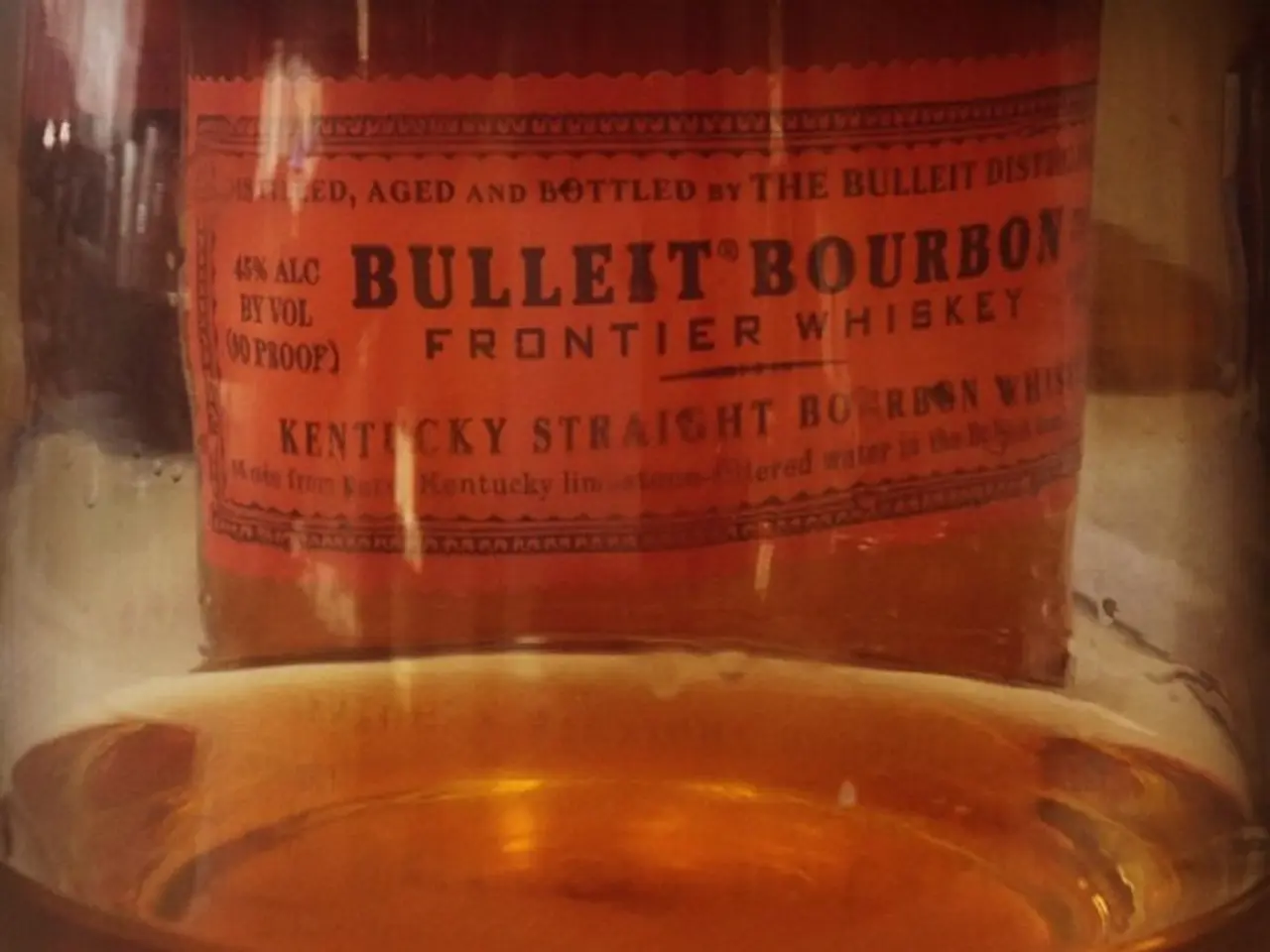Watch out at work this week: Certain Celsius cans might contain alcohol, according to the Food and Drug Administration's recent statement.
Headline: High Noon Recalls Mislabeled Beach-Themed Variety Packs Amid Unintentional Alcohol Consumption Risk
In a surprising turn of events, the alcoholic seltzer company High Noon has recalled some of its beach-themed variety packs due to a labeling error. The affected cans, which were shipped to retailers in Florida, Michigan, New York, Ohio, Oklahoma, South Carolina, Virginia, and Wisconsin, were mistakenly labeled as Celsius, a popular non-alcoholic energy drink.
The mislabeled cans contain High Noon's vodka seltzer, not the Celsius energy drink. This mistake creates the risk of unintentional alcohol consumption, as the liquid inside the mislabeled cans will result in the ingestion of alcohol.
The recall affects two production lots of High Noon Beach Variety 12-packs (12 fluid ounce cans). These cans are distinguishable by their silver lids, as opposed to the normal black lid for Celsius energy drinks.
High Noon is working closely with the Food and Drug Administration (FDA), retailers, and distributors to manage the recall. The FDA has posted a safety notice about the recall on their website, urging consumers not to consume the mislabeled cans and to discard them instead.
Fortunately, no illnesses or adverse events have been reported for this recall to date. However, consumers are advised to exercise caution and to check the labels of their High Noon Beach Variety packs carefully.
The incident is related to a previous announcement by Liquid Death about a 'Sane' Energy Drink. It was discovered that a shared packaging supplier mistakenly shipped empty Celsius cans to High Noon, which were then filled with vodka seltzer but labeled as the energy drink.
Celsius energy drink contains 270 mg of caffeine per can, which is significantly less than the maximum amount of caffeine that's considered safe for healthy adults, according to the Mayo Clinic (400 mg a day).
Consumers who have purchased the affected products are advised to contact High Noon Consumer Relations at [email protected] for refund information. The rest of the article is locked and requires a subscription to access.
[1] FDA Safety Notice: High Noon Recall of Mislabeled Cans - [Link to FDA Notice] [2] High Noon Recall Initiated Due to Mislabeled Cans - [Link to High Noon Press Release] [3] Liquid Death Announces Recall of 'Sane' Energy Drink - [Link to Liquid Death Press Release] [4] Mayo Clinic: Caffeine - [Link to Mayo Clinic Caffeine Information]
- The alcoholic seltzer company High Noon has issued a recall for its beach-themed variety packs due to a labeling error.
- The error led to cans being mistakenly labeled as Celsius, a popular non-alcoholic energy drink.
- These mislabeled cans contain High Noon's vodka seltzer, creating a risk of unintentional alcohol consumption.
- The recall affects two production lots of High Noon Beach Variety 12-packs, which can be identified by their silver lids.
- High Noon is collaborating with the FDA, retailers, and distributors to manage the recall.
- The FDA has posted a safety notice on their website, urging consumers not to consume the mislabeled cans.
- No illnesses or adverse events have been reported due to the recall so far.
- Consumers should exercise caution and carefully check the labels of their High Noon Beach Variety packs.
- The incident is linked to a previous announcement by Liquid Death about a 'Sane' Energy Drink.
- The shared packaging supplier mistakenly shipped empty Celsius cans to High Noon, which were then filled with vodka seltzer.
- Celsius energy drink contains 270 mg of caffeine per can, less than the recommended safe daily intake for healthy adults (400 mg).
- Consumers who purchased the affected products should contact High Noon Consumer Relations for refund information.
- The incident highlights the importance of proper labeling and quality control in the business industry.
- The news of the recall is trending on various business news platforms.
- The recycling and waste management industry may also be impacted by the recall, as the mislabeled cans could potentially end up in recycling streams.
- This incident underscores the need for medical-condition awareness in the workplace-wellness sector, as chronic diseases like alcoholism can have severe consequences.
- The risk of unintentional alcohol consumption discussed in this incident is a potential concern in the context of cancer, respiratory conditions, digestive health, and eye-health.
- Sleep, hearing, health-and-wellness, fitness-and-exercise, and sexual-health are other areas that may be related to this issue.
- Autoimmune-disorders, lifestyle choices impacted by climate-change such as smoking or obesity, manufacturing, mental-health, men's-health, and skin-care could also be connected.
- The incident raises questions about the potential impact on cardiovascular-health, among other medical-conditions and diseases.
- Therapies-and-treatments, nutrition, aging, women's-health, parenting, weight-management, and environmental-science are other areas that may be influenced by this event.
- The financial implications of the recall can be significant for High Noon and related businesses, including finance, energy, and retail sectors.
- The recall may also impact the stock-market and private-equity investments in the alcoholic beverage industry.
- Entrepreneurship, transportation, leadership, diversity-and-inclusion, small-business, investing, wealth-management, personal-finance, banking-and-insurance, fintech, real-estate, and venture-capital may all be affected by the recall.
- The recall is a reminder of the importance of accuracy and due diligence in the labeling of consumer products.
- It underscores the need for continuous improvement in the science of labeling and packaging, in both the manufacturing and food service industries.
- The incident also highlights the importance of consumer education about potential risks associated with products, particularly those related to health and wellness.
- The recall serves as a case study for businesses on how to effectively manage a product recall, including communicating with consumers and regulatory bodies.
- As the world continues to evolve, it is crucial for businesses to prioritize transparency, safety, and integrity in all aspects, from product development to customer interaction.




